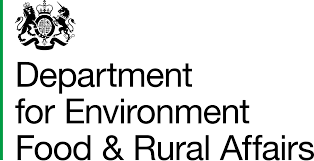PRESS RELEASE : £15 million funding boost to strengthen supply of critical minerals [February 2023]
The press release issued by the Department of Business and Trade on 27 February 2023.
Tonnes of rare earth elements – essential for technology such as electric vehicles and wind turbines – could be recycled in future thanks to £15 million of government funding for cutting edge research.
- £15 million boost for critical minerals used in clean energy technology
- new research and development programme to focus on a specific group of critical minerals: rare earth elements
- rare earths – like those used in electric motors – are essential to economic and national security and capitalising on growing industries
Tonnes of rare earth elements – essential for technology such as electric vehicles, wind turbines and smart phones – could be recycled in future thanks to £15 million of government funding for cutting edge research to strengthen supply of critical materials.
Rare earth elements are a family of critical minerals used in products ranging from electric vehicle motors to washing machines. They are vital to the economy, as they are used to create vital components in products ranging from laptops to aircraft. But supply chains are complex and markets are volatile, with most critical minerals sourced from just a handful of countries. This leaves UK jobs and industries vulnerable to market shocks and geopolitical events, which is why the government is working to help UK firms establish resilient and sustainable access to critical minerals.
The £15 million funding will launch the CLIMATES programme, delivered by Innovate UK, to develop work on rare earths by researchers and businesses across the country. This will support innovations in the recycling of rare earth elements, as well as research and development, engagement with international partners and activities to identify and support future skills needs. The programme will also look to unlock further private investment in projects to develop resilient supply chains for these important resources.
Nusrat Ghani, Minister of State at the Department for Business and Trade, said:
Rare earth elements underpin so much of what makes everyday life and work possible, from the cars we drive to the phones we use. It is essential that, in a rapidly changing world, we do all we can to ensure resilient supplies of these and other critical minerals.
The impact of Russia’s illegal war in Ukraine on energy prices has been a timely reminder of how important supply chains are for all parts of our economy. That’s why we are laser-focused on securing robust supply chains, for the growing, green industries that will deliver jobs and prosperity across the UK in the decades to come.
Mike Biddle, Executive Director for Net Zero at Innovate UK said:
Now is the time to build UK capability and a sustainable supply of rare earth elements, working with international partners. The rising costs of energy has demonstrated the importance of resilient global supply chains. Our CLIMATES programme will work with businesses, investors, and industry bodies to deliver a series of activities, from funding competitions to networking events and workshops, all designed to drive growth in the sector and build resilient supply chains to help us strengthen our economy and meet our environmental targets.
Will Drury, Challenge Director, Driving the Electric Revolution, Innovate UK said:
For the UK to deliver on its net zero ambitions we must have access to critical minerals and materials. This intervention by Innovate UK in support of the UK government’s strategy provides a thrilling proposition for UK businesses and innovators to build on our research excellence. Our aim is to create an exciting investment proposition that enables growth in this vital area.
It is because of these global challenges that the government will refresh the delivery approach of the UK’s Critical Minerals Strategy, which will be published later in 2023. To deliver on the Strategy’s commitment to collaborate internationally, we have continued to engage bilaterally and across a range of multilateral forums, notably the Minerals Security Partnership (MSP), the International Energy Agency (IEA), the International Renewable Energy Agency (IRENA), the G7 and the G20.
Production of critical minerals of all kinds is expected to rise sharply – some as much as 500% by 2040. The government is working to ensure the UK secures a strong foothold in this growing market by supporting key investment in related industries.
In July 2022 Pensana launched the UK’s first-ever magnet materials refinery in East Yorkshire, a £145 million facility that will secure hundreds of jobs and form an important part of the UK’s electric vehicle supply chain. In November 2022 Green Lithium announced they would build the first large-scale lithium refinery anywhere outside of Asia, in Teeside. Both investments are supported by the government’s Automotive Transformation Fund.
The government is also harnessing the UK’s unparalleled expertise around critical minerals data, through work with the British Geological Survey. They are delivering the work of the Critical Minerals Intelligence Centre (CMIC), set up to improve the resilience of critical mineral supply chains by providing policymakers with up-to-date data and analysis on supply, demand, and market dynamics.



